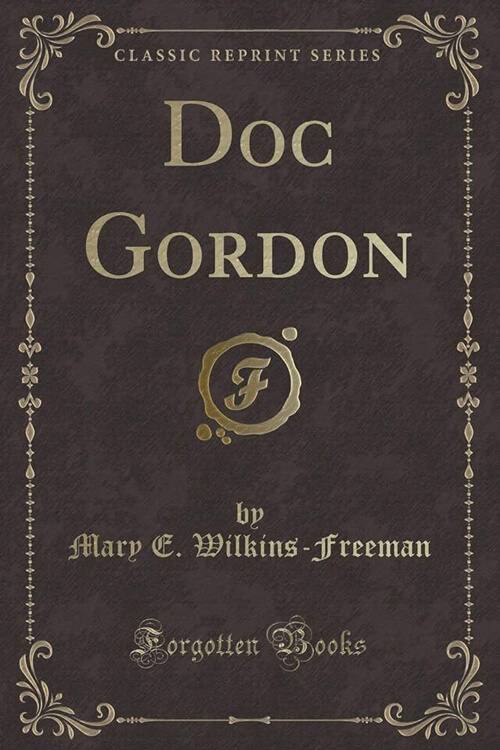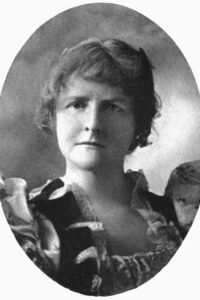
‘Doc.’ Gordon
It was very early in the morning, it was scarcely dawn when the young man started upon a walk of twenty-five miles to reach Alton, where he was to be assistant to the one physician in the place, Doctor Thomas Gordon, or as he was familiarly called, “Doc.” Gordon. The young man’s name was James Elliot. He had just graduated, and this was to be his first experience in the practice of his profession of medicine. He was in his twenties. He was small, but from the springiness of his gait and the erectness of his head, he gave an impression of height. He was very good-looking, with clearly-cut features, and dark eyes, which shone, like black diamonds, sparks of mischief.
They were honest eyes, too. The young fellow was still sowing his wild oats, but more with his hands than with his soul. He was walking because of a great amount of restless energy; he fairly reveled in stretching his legs over the country road in the keen morning air. The train service between Gresham, his home place, and Alton was very bad, necessitating two changes and waits of hours, and he had fretted at the prospect. When a young man is about to begin his career, he does not wish to sit hours in dingy little railroad stations on his way toward it. It was much easier, and pleasanter, to walk, almost run to it, as he was doing now. His only baggage was his little medicine case; his trunk had gone by train the day before. He was very well dressed, his clothes had the cut of a city tailor. He was almost dandified.
His father was well-to-do: a successful peach grower on a wholesale scale. His great farm was sprayed over every spring with delicate rosy garlands of peach blossoms, and in the autumn the trees were heavy with the almond-scented fruit. He had made a fortune, and aside from that had achieved a certain local distinction. He was the mayor of Gresham, which had a city government. James was very proud of his father and fond of him. Indeed, he had reason to be. His father had done everything in his power for him, given him a good education, and supplied him liberally with money. James had always had a sense of plenty of money, which had kept him from undue love of it. He was now beginning the practice of his profession, in a small way, it is true, but that he recognized as expedient. “You had better get acclimated, become accustomed to your profession in a small place, before you launch out in a city,” his father had said, and the son had acquiesced. It was the natural wing-trying process before large flights were attempted, and the course commended itself to his reason. James, as well as his father, had good reasoning power.
He whistled to himself as he walked along. He was very happy. He had a sensation as one who had his goal in sight. He thought of his father, his mother, and his two younger sisters, but with no distress at absenting himself from them, although he lived in accord with his family. Twenty-five miles to his joyous youth seemed but as a step across the road. He had no sense of separation. “What is twenty-five miles?” he had said laughingly to his mother when she had kissed him goodbye. He had no conception of her state of mind about the break in the home circle. He who was the breaker did not even see the break. Therefore he walked along, conscious of an immense joy in his soul, and wholly unconscious of anything except joy in the souls of those whom he had left behind. It was a glorious morning, a white morning. The ground was covered with white frost, the trees, the house-roofs, the very air, were all white. In the west a transparent moon was slowly sinking; the east deepened with red and violet tints.
Then came the sun, upheaving above the horizon like a ship of glory, and all the whiteness burned and glowed, and radiated jewel lights. James looked about with the delight of a discoverer. It might have been his first morning. He has begun to meet men going to their work, swinging tin dinner pails. Even these humble pails became glorified, they gave back the sunlight like burnished silver. He smelled the odors of breakfast upon the men’s clothes. He held up his head high with a sort of good-humored arrogance as he passed. He would have fought to the death for any one of these men, but he knew himself, quite innocently, upon superior heights of education, trained thought, and ambition. He met a man swinging a pail; he was coughing: a wretched, long rattle of a cough. James stopped him, opened his little medicine case, and produced some pellets.
Read or download Book
Mary E. Wilkins
Mary Eleanor Wilkins Freeman (October 31, 1852 – March 13, 1930) was an American author.
Biography
Freeman was born in Randolph, Massachusetts on October 31, 1852, to Eleanor Lothrop and Warren Edward Wilkins, who originally baptized her “Mary Ella”. Freeman’s parents were orthodox Congregationalists, bestowing a very strict childhood. Religious constraints play a key role in some of her works.
In 1867, the family moved to Brattleboro, Vermont, where Freeman graduated from the local high school before attending Mount Holyoke College (then, Mount Holyoke Female Seminary) in South Hadley, Massachusetts, for one year, from 1870 to 1871. She later finished her education at Glenwood Seminary in West Brattleboro. When the family’s dry goods business in Vermont failed in 1873, the family returned to Randolph, Massachusetts. Freeman’s mother died three years later, and she changed her middle name to “Eleanor” in her memory.
Freeman’s father died suddenly in 1883, leaving her without any immediate family and an estate worth only $973. Wilkins returned to her hometown of Randolph. She moved in with a friend, Mary J. Wales, and began writing as her only source of income.
During a visit to Metuchen, New Jersey in 1892, she met Dr. Charles Manning Freeman, a non-practicing medical doctor seven years younger than she. After years of courtship and delays, the two were married on January 1, 1902. Immediately after, she firmly established her name as “Mary E. Wilkins Freeman”, which she asked Harper to use on all of her work. The couple built a home in Metuchen, where Freeman became a local celebrity for her writing, despite having occasionally published satirical fictional representations of her neighbors.[ Her husband suffered from alcoholism and an addiction to sleeping powders. He also had a reputation for driving fast horses and womanizing. He was committed to the New Jersey State Hospital for the Insane in Trenton and the two legally separated a year later. After he died in 1923, he left the majority of his wealth to his chauffeur and only one dollar to his former wife.
In April 1926, Freeman became the first recipient of the William Dean Howells Medal for Distinction in Fiction from the American Academy of Arts and Letters.
Freeman suffered a heart attack and died in Metuchen on March 15, 1930, aged 77. She was laid to rest in Hillside Cemetery in Scotch Plains, New Jersey.
Adolescence
As an adolescent, Freeman was increasingly caught between the need for her mother’s love and her instinct to avoid becoming her mother and subsiding into her mother’s form of passivity. Despite continuous pressure from her mother to participate in domestic chores, no amount of discipline could pull Mary away from her reading to the reality of hated kitchen work. According to Edward Foster’s biography of Freeman, “Disliking her household duties, she avoided them, nor could she be moved by disciplinary tactics.” It is clear that a growing tension between Mary and her mother centered on her resistance to undertaking the tasks expected of a “good girl.”
As the years passed, the contrast between Mary and her sister, Anna, became apparent. While her sister Anna willingly undertook domestic work and increasingly met her parents’ expectations, Mary quietly began to reject them. She would resist her mother’s world of domesticity throughout her entire life. Her story, “The Revolt of Mother” is especially significant in this context, for the story seems to have been written as a tribute to her mother’s work, a form of work she had never valued in her mother’s lifetime.






